 I had the pleasure of conversing on-air with Chaplain Chris Haughee, to discuss trauma-informed ministry and his role as chaplain at Intermountain in Helena, Montana, on my most recent episode of The Healing Place Podcast, available on iTunes, Blubrry or directly on my website at www.teriwellbrock.com/podcasts/.
I had the pleasure of conversing on-air with Chaplain Chris Haughee, to discuss trauma-informed ministry and his role as chaplain at Intermountain in Helena, Montana, on my most recent episode of The Healing Place Podcast, available on iTunes, Blubrry or directly on my website at www.teriwellbrock.com/podcasts/.
Chris shared his insights with me by answering my interview questions beforehand, as well. With his permission, I am sharing his written responses with you:
Today, I welcome Chaplain Chris Haughee (pronounced “Hoy”), who is joining us to discuss trauma-informed ministry practices and his experience as a chaplain to the children of Intermountain, a residential facility for severely emotionally disturbed children in Helena, Montana.
The Reverend Chris Haughee is a licensed minister of the Evangelical Covenant Church and has served as chaplain of Intermountain’s residential services in Helena, Montana, since 2012. An adoptive father to two, Chaplain Chris Haughee is an advocate for greater inclusion of foster and adoptive families in the life and ministry of local congregations. You can follow his ministry at www.intermountainministry.org, contact him at chrish@intermountain.org or order the curriculum “Bruised Reeds and Smoldering Wicks” to learn more about becoming a trauma-informed ministry.
Q: Please tell us a little bit about your story.
It’s been four years ago now. My son had a particularly bad day at school, and his rage had hit the point at home that evening where I needed to wrap my arms around him until he calmed down. When he finally settled into my embrace, he sobbed. He couldn’t look me in the eye as I asked him how he felt. Head in hands he muttered, “I feel yucky inside, and I feel like that almost all the time.”
Despite all the love being poured into him, nothing was sticking because of his profound sense of shame. Holding my broken-hearted son, I have never felt more broken and helpless as a father. As a dad, when you see your child hurting, you’d do anything possible to help. That image of my son sitting in my lap, hands over his face unable to look at me and see the love and care in my eyes, will remain with me forever. It has driven me deeper into my own sense of call to express the love of God to those most desperately in need of it, especially those trapped in shame.
This experience steeled my resolve to help other parents, and other pastors and ministries, through producing materials that would train, encourage, and empower the community of faith to help hurting children.
Q: If you could reach as many people in the world as possible with your message, who would you want your audience to be?
My primary audience is the church, especially those in leadership. Churches and ministries can be very effective communities for reducing stigma, healing trauma, and building resilience. Unfortunately, these same communities can also re-traumatize people, marginalize those most in need of help and healing, and can be guilty of holding any number of views towards mental illness and emotional disturbance that aren’t only bad practice when it comes to ministry, but also don’t truly align with their theology and mission, because they aren’t supported biblically.
I have worked hard at producing materials that would train, encourage, and empower the community of faith to help hurting children. My first attempt at creating such a resource is a six-week study for adults called “Bruised Reeds and Smoldering Wicks,” released in 2017. In the last fifteen months, it has been ordered by ministries and social service agencies representing 33 different states, two countries and the District of Columbia. It’s an effort in building “trauma-informed ministries.” A trauma-informed ministry is one that understands the impact of early childhood and other relational trauma has on brain development and social and spiritual functioning.
For those curious about the content of the curriculum, here is a brief outline:
- Week One: Jesus and the children; key idea: Jesus welcomes ALL children, even those affected by trauma, toxic stress, or adversity (ACEs)
- Week Two: Advocacy… what is this “trauma-informed” talk all about?; key idea: In order to advocate for children and families impacted by trauma, your church should consider trauma-informed ministry.
- Week Three: Was Jesus’ ministry “trauma-informed?”; key idea: Jesus understood the devastating effects of trauma and adversity and his ministry was shaped in a way that responded to our needs.
- Week Four: How the traumatized can look like they “have it all together.” key idea: those that are dealing with trauma don’t all look the same. Even leaders in your community have been touched by trauma… so everyone should be treated compassionately.
- Week Five: Does being trauma-informed mean we avoid saying hard things? key idea: Jesus was compassionate, yet firm… being trauma-informed means you prepare for the strong reaction some topics may elicit, not that you avoid all issues that may elicit a strong reaction.
- Week Six: Responding to trauma within the compassionate Kingdom of God; key idea: God’s Kingdom stands apart from this world’s kingdoms, bringing justice and mercy where trauma and heartache have prevailed.
- BONUS MATERIALS: “Advocating for Rachel”–a case study from a licensed child and family therapist with suggestions for interventions that a church can appropriately implement to help hurting children and families!
I am currently working on a new edition of the curriculum that would include two additional studies on working with adults that have experienced trauma or are currently going through traumatic experiences and mental health issues, and a week on “next steps,” or how a group that has engaged the rest of the study can determine where to start in forming trauma-informed ministry practices that fit their context.
Q: Why is trauma-informed ministry and working with traumatized children so important to YOU?
It’s important to me because of my personal connection, in my home and in my work. I can see that those hurting and traumatized individuals are the very ones that Jesus was drawn to in his earthly ministry. My “life verse” is 1 John 2:6—“Anyone who claims to live in him must walk (live) as Jesus did.” So, this is about me “walking my talk.” If I am a Jesus follower, I better be about the things Jesus was passionate about. There is no escaping that Jesus was passionate about children and about those who are marginalized by their situation or their suffering.
Q: Are there any myths or facts you would like to clarify for our listeners?
Being “trauma-informed” in ministry is not a program. It’s not a fad or gimmick. It’s a lens through which you can come to see the world differently. It’s not unlike the “scales falling from Saul’s eyes” when he is healed of his blindness (through Ananias) after encountering Jesus on the road to Damascus (Acts 9:18). Once you learn about ACEs and trauma and the impact it has on a person—physically, emotionally, relationally and spiritually… well, you’d wonder how you ever saw things differently.
For instance, I will take Jesus’ teaching on worry from the Sermon on the Mount as an example of how knowing about ACEs and trauma helps you to se the world differenty (Matthew 6:25-34). In this teaching, Jesus says, “Do not worry about your life and what you will eat or drink… and what you will wear… Can you add even one hour to your life by worrying?”
How many of us have heard from messages on this teaching? After hearing a sermon on the subject of worry, how many of us have walked away thinking, “I should worry less! Jesus just wants me to trust God, so my anxiety means I am not being faithful.” Ironically, we might end up worrying about how much we worry!
Now here’s where knowing about the challenges facing those with ACEs should be reflected in our interpretation of this teaching: telling the survivor of ACEs to worry less, and that’s what Jesus wants you to do, is about as sensitive as telling a disabled child that they need to stop using their wheelchair and that Jesus wants them to walk. Many with ACEs wish they could be less anxious, but their brains adjusted to an elevated level of stress hormones early in their development.
Physically, their nervous and endocrine systems are not the same as someone who didn’t have that adversity in childhood. If someone’s infirmity doesn’t scream out to our sense of sight, touch, or hearing we shouldn’t assume it is less significant. The ACE Study found that the child with six or more ACEs will likely die 20 years earlier than the child with no ACEs. That’s significant.
Are we missing the point of the passage by shaming others and ourselves about our anxiety? I contend that Jesus was less concerned about worry than our inability to recognize our dependence on God. What did Jesus speak to? Worry about food, drink, and clothes. For most, provision of these basic needs in childhood was not an issue. But, for the child who truly didn’t have enough to eat as a child, who learned to hoard when food was available, THAT child just might have food issues—that’s just one common example I see in my ministry. Consider how you would tell these children about Jesus’ message on worry instead of the kids that argue about how many stalks of broccoli they might have to eat in order to get dessert.
When you can do that, you will know that you are on your way to being trauma-informed and that the scales have fallen from your eyes, as well!
Q: What support and resources have YOU utilized or recommend for our audience?
Perhaps a little selfishly, I’d like people to engage in the materials I have written… the curriculum called Bruised Reeds and Smoldering Wicks. I don’t benefit from the sale of these materials. All the proceeds go towards Intermountain, the place of my employment and ministry.
I can also recommend Key Ministries and the book “Mental Health and the Church,” as well as colleague Rene Howitt’s work at Cope24. I just reviewed a Bible study she has worked on that will be published later this year, and it’s really good. Personally, I can recommend the work of Lisa Qualls at OneThankfulMom.com. Also, any materials that come out of the Karyn Purvis Institute of Child Development at Texas Christian University, were they teach TBRI: Trust-based Relational Intervention, which is very similar to the relational-developmental work that Intermountain does.
Q: How did you overcome/handle your own trauma and parenting a trauma-affected child? What do you suggest our listeners do to help them overcome/handle trauma, and how it intersects with their faith?
To quote a friend who just gave her testimony at our church about her own struggles with mental health misdiagnosis and recovery, she was told after her first hospitalization, “This won’t be the first time you deal with this.” Our trauma is always with us. It’s about viewing your trauma-story as something you own, rather than being owned by your trauma. It doesn’t define you, but it has shaped you. Once I could accept that for myself and for my child, and for all the children I work with, I could embrace hope.
Ultimately, that’s what faith is about… hope. Hope that our present situation or circumstance isn’t all there is. Hope that we can find community and healing together. I’d like to encourage your listeners to walk towards their trauma in whatever way they can, with as much support and help as they can muster from their community, friends and family, and know that they can transform their pain into their power with enough time and patience with themselves. Hold on to hope.
Q: If you could meet anyone in the world, dead or alive, who could help you with working with traumatized children, who would it be?
Well, Jesus would be the obvious answer, right? And, my faith teaches me that Jesus is very much alive… not just in the words of scripture, but in the real life encounters I have on a daily basis. As he taught us in the parable of the sheep and the goats from Matthew’s gospel… every time we extend kindness and grace to someone who is marginalized, without hope, or is distressed, we are actually interacting with Jesus. The saints of the church have always understood this to be true. It fueled individuals like Mother Teresa. It empowered the social justice of Dr. Martin Luther King, Jr. And… so many others that won’t ever be famous our applauded in this lifetime.
Q: What is your dream job? Does it revolve around this topic? Do you want to be more involved in trauma-related ministry?
I think I am in my dream job, at least for now! I’d like to think I can speak with some insight to this very difficult and complicated topic of trauma-informed ministry because I am a pastor, parent, and ministry professional in a residential facility for severely emotionally disturbed and traumatized children. It’s not a calling I would have selected for myself when I was a younger man, but it’s deeply rewarding because I know that I am engaged in a ministry that means something… not just now, but for generations that follow and, God willing, for eternity as people who have felt outside of God’s love and acceptance understand their place in the community of faith.
I’d love to have the freedom to travel a bit more and share the passion I have for this work. I also wish I had a bit more of the research psychologist’s expertise, as I am working on building resilience in the children I work with and have attempted to measure the effectiveness of that work. It’s just not in my wheelhouse, so to speak, so I am hoping that God brings someone forward that shares my passion and has the research expertise to work with the data I am compiling! We’ll see… I am a dreamer and an idealist, and I think that scientifically proving that trauma-informed ministry can build resilience in severely disturbed children just might be what it would take for more ministry professionals to catch on!
Here’s an article I wrote about the resilience-focused curriculum I am writing:
Building Resilience for Better Lives (article for March 17, 2018 religion page)
Life is hard. “In this world you WILL have trouble,” Jesus said. The ability to successfully face the hardships that will inevitably come to us will determine our level of satisfaction, joy, and peace. Resilience isn’t just a desirable trait, it’s absolutely essential. And, it turns out that scripture has a lot to say about this essential quality for successful living.
There are many passages we could examine to illustrate the point, but the letter from James is one of my favorites. Eugene Peterson does a good job capturing the meaning of James 1:12– “Anyone who meets a testing challenge head-on and manages to stick it out is mighty fortunate. For such persons loyally in love with God, the reward is life and more life.” Patient endurance. Perseverance. Determination. Grit. All these characteristics are desired to face and overcome adversity.
When working with and ministering to severely emotionally disturbed children, instilling these characteristics is a necessity. Children who have experienced early childhood trauma, sometimes called “ACEs” or adverse childhood experiences, desperately need to know that God loves them and that they have the skills and abilities to meet their present challenges and future difficulties. It’s not enough to simply love them and teach them Bible stories. They NEED the tools to take what they are learning from Intermountain’s amazing staff so they can apply it to their lives and integrate it into their belief system. When they believe the truths we seek to impart and embrace the unconditional nature of God’s love and our care, then we know we have made a lasting difference. That is why I have purposefully shifted the ministry focus at Intermountain Residential to building resiliency in the thirty-two children under our care.
Resilience is more than simply picking yourself up after you get knocked down, it involves environmental and biological factors that are often out of our control. As Paul Tough writes in his excellent book, How Children Succeed, the science of resilience tells us “that the character strengths that matter so much to young people’s success are not innate… they are not simply a choice. They are rooted in brain chemistry, and they are molded, in measureable and predictable ways, by the environment in which children grow up.”
For over a decade, many of those involved in social work have recognized the need to focus on a child’s strengths rather than their deficits. As the Social Work Policy Institute states, effective social work with vulnerable children has shifted to a “strengths perspective,” and as a result, “increased attention was paid to personal qualities and social influence that promote or reflect health and well-being.” I love the idea of building on the strengths the children I work with already have and then structuring my lessons and instruction in chapel around those traits identified to further build resilience.
I am currently writing a curriculum that ties into the measure developed by the Resilience Research Centre in Halifax, Nova Scotia (resilienceproject.org). Using their “Child and Youth Resilience Measure,” I have been interviewing the children of Intermountain for the last four months and the initial results are encouraging. Recently, two formerly fearful children looked me in the eye at their discharge and could recount the things they learned and the skills they gained while in our care. They could see the connection to their faith and how their story and God’s story were now woven together on the path to resilience, experiencing greater hope, joy, and peace.
“In this world you will have trouble,” Jesus said. The children of Intermountain know that trouble better than most! Jesus continued, “But take heart! I have overcome the world” (John 16:33). Let us join together in God’s Kingdom work, building more resilient children, families and communities.
If this effort is something you’d be interested in knowing more about, I’d encourage you to contact me or find out more about Intermountain and Elevate Montana. The Helena Affiliate of Elevate Montana meets monthly and is an inspiring group of people serving in a number of fields and capacities throughout Helena. If we’re going to make a difference in the hearts, minds and souls of children and youth in our community, we’ll need everyone’s help in some way.
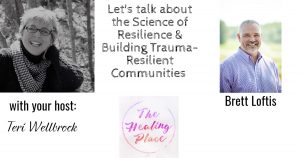
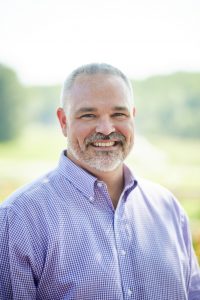

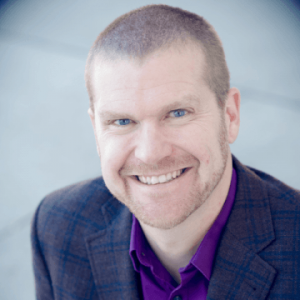



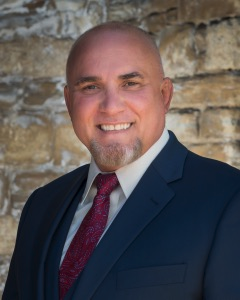

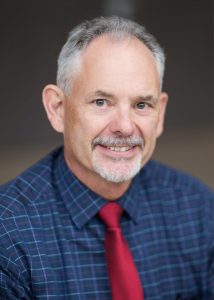




 Emily kindly shared the following information for us.
Emily kindly shared the following information for us.